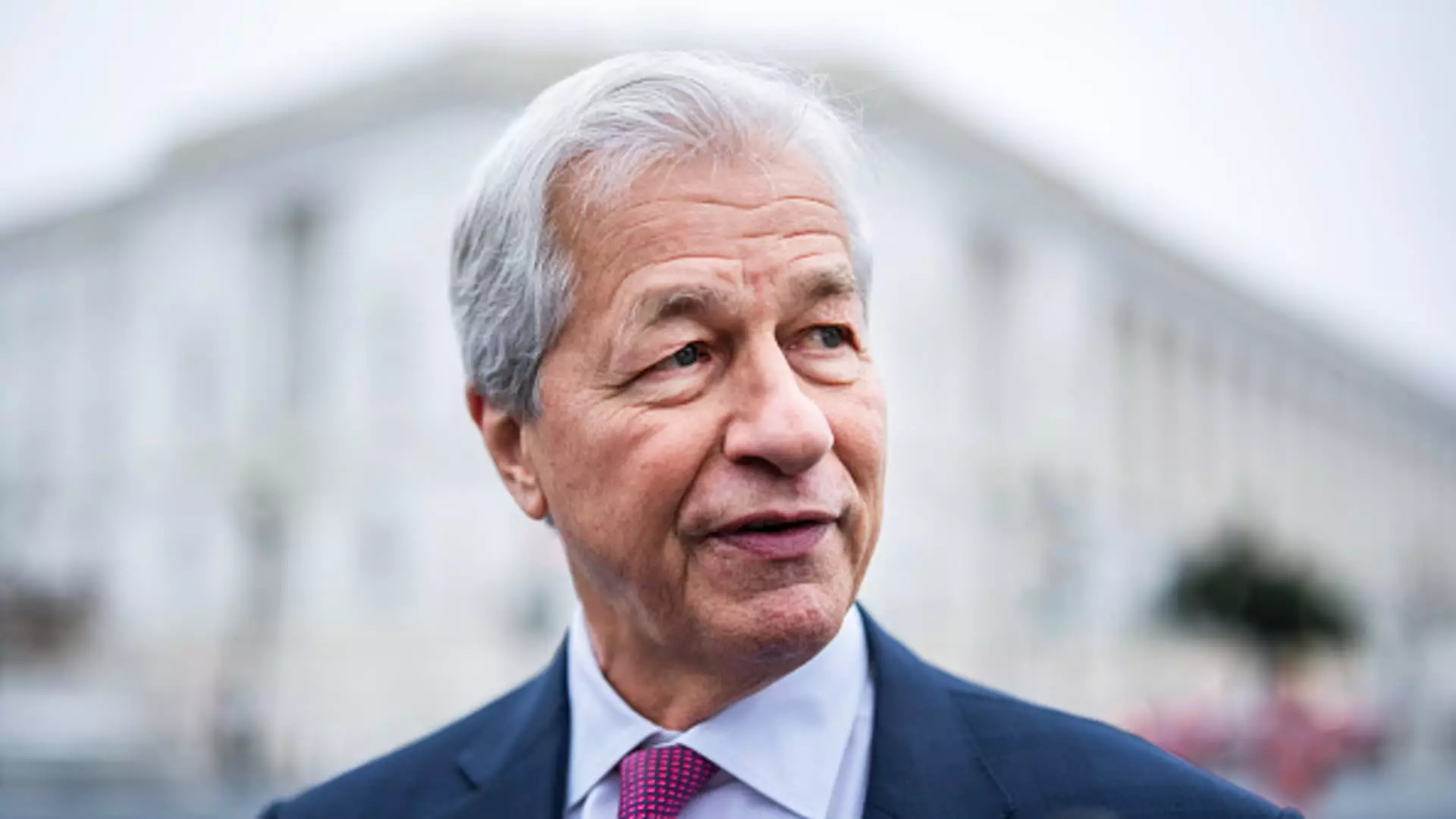In a recent statement, Jamie Dimon, the CEO of JPMorgan Chase, underscored the pressing need for reform within the U.S. government. Highlighting the inefficiencies and incompetence prevalent in federal operations, Dimon’s remarks resonate within the ongoing discourse regarding the optimization of government functions, especially in light of recent administrative changes under the Trump administration. The dismissal of thousands of federal employees and the dismantling of agencies such as the Consumer Financial Protection Bureau have raised significant eyebrows about the implications of such actions on governmental efficacy.
While discussing the Department of Government Efficiency—established under the advisory influence of tech mogul Elon Musk—Dimon opted for a nuanced stance rather than an outright endorsement. This careful approach illustrates a strategic consideration of the potential implications of the initiative. Dimon pointedly remarked that the current state of government waste extends beyond mere mismanagement and fraud to encompass a broader spectrum of outcomes that fail to meet public expectations. In this regard, he aligns himself with those advocates calling for transformative measures that would drastically improve both efficiency and effectiveness in governmental operations.
Dimon’s comments reflect a broader concern regarding federal expenditures. He provocatively questioned the rationale behind current spending practices, prompting essential inquiries about the true value provided by federal programs and their alignment with taxpayer expectations. By questioning the status quo, Dimon sheds light on the critical need for a paradigm shift focused on creating policies and procedures that genuinely serve the public interest. This viewpoint is particularly salient in today’s climate where fiscal responsibility is crucial, especially in discussions surrounding national deficits and economic sustainability.
Despite his criticisms, Dimon acknowledged the inherent risks associated with government initiatives aimed at trimming budgets. He cautioned that overreach by the Department of Government Efficiency could provoke legal and operational challenges, suggesting that there exists a balance between necessary reforms and respecting legal boundaries. His hopeful outlook toward the success of these efficiency measures implies a recognition of the potential for positive change, provided it is executed with prudence and responsibility.
In a broader context, Dimon’s remarks and the accompanying interview explore various dimensions of corporate responsibility and societal engagement. The emphasis on bringing workers into offices five days a week symbolizes JPMorgan’s overarching philosophy toward productivity and collaboration. Furthermore, Dimon’s insights on global issues such as the Ukraine conflict and U.S. tariffs reinforce the interconnectedness of economic stability and government efficacy in navigating complex challenges facing not just the United States but the global community at large.
Jamie Dimon’s advocacy for government reform highlights an urgent need for improved efficiency and accountability. As the U.S. navigates substantial institutional changes, his perspective serves as a clarion call for policymakers to engage in thoughtful reform that prioritizes the public good while ensuring that federal operations are both effective and legally sound.

